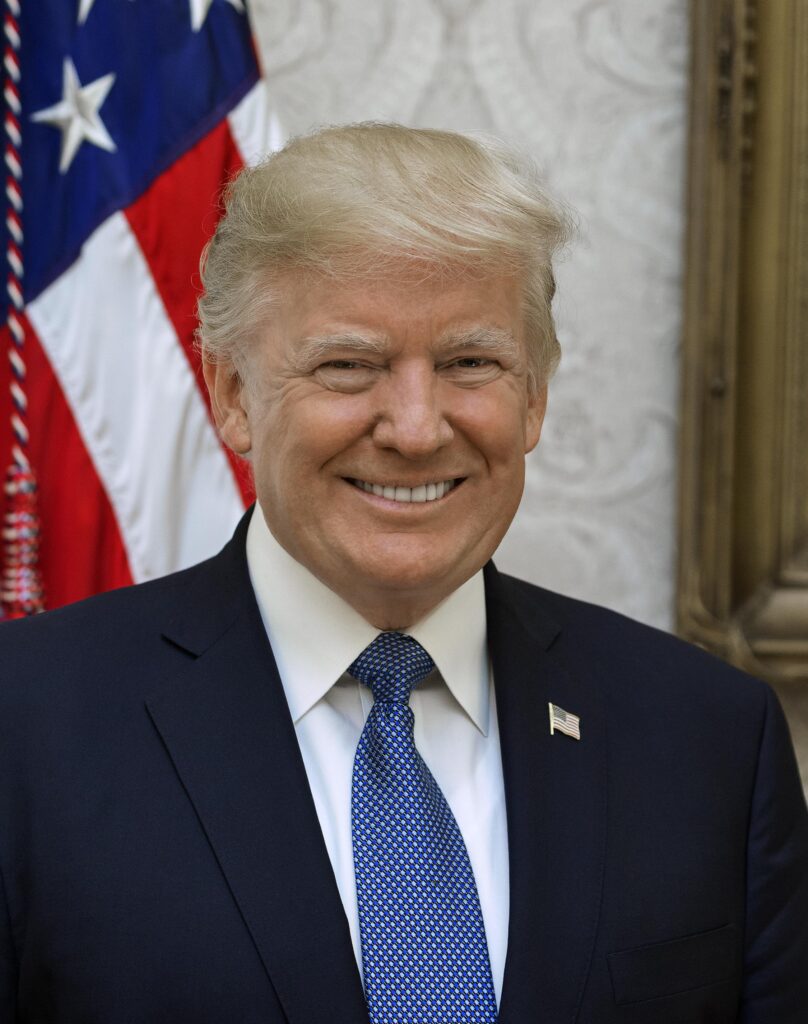Trump’s Proposal to Rename the Persian Gulf: A Controversial Diplomatic Shift
In a significant development that could reshape diplomatic dynamics in the Middle East, former President Donald Trump has revealed intentions to change the official U.S. designation for the Persian Gulf. This initiative, driven by historical and political considerations, seeks to replace the widely accepted term with one that aligns more closely with a different narrative about the region. The announcement has sparked a vigorous debate regarding the role of language in international relations as various stakeholders assess its potential impact on U.S. ties with Iran, Gulf nations, and other interested parties. As discussions progress, analysts are exploring how this decision might alter perceptions and alliances in an already tense area.
Trump’s Name Change Initiative Ignites Debate
The suggestion from former President Trump to modify how the United States refers to the Persian Gulf has triggered intense discussions across both political and cultural landscapes. The proposed terminology shift towards “Arabian Gulf” is viewed by some as an effort to align U.S. language with preferences expressed by several Arab countries in the region. Critics contend that this alteration risks erasing historical context and could exacerbate tensions with Iran, which staunchly defends its claim over this nomenclature.This issue raises critical questions about identity politics, nationalism, and America’s role within Middle Eastern geopolitics.
The dialogue surrounding this naming policy change reveals diverse perspectives on its implications. Advocates of rebranding argue it signifies a deeper commitment to Arab allies while serving as an important diplomatic gesture. In contrast, detractors caution that such changes may have far-reaching consequences for U.S.-Iran relations and influence perceptions of American involvement in regional matters.Key elements shaping opinions include:
- Cultural Heritage: The term “Persian Gulf” carries profound historical significance recognized globally.
- Diplomatic Relations: Adopting terminology favored by allies may enhance diplomatic connections.
- Geopolitical Consequences: Changes in naming can provoke strong reactions and deepen existing divides.
Effects of Naming Change on U.S. Diplomacy and Regional Ties
The potential renaming of what is currently known as the Persian Gulf could have substantial effects on U.S foreign policy along with relationships involving key regional players. In diplomacy,the significance of names cannot be overstated, as they often encapsulate historical grievances alongside national identities. A shift towards new terminology might be perceived as endorsing specific narratives over others—especially among nations within or adjacent to the Arabian Peninsula—leading countries like Iran—which refers to it as ”Persian Gulf”—to view such changes unfavorably or even provocatively aligning more closely with their Arab neighbors amidst ongoing geopolitical tensions.
This nuanced transition not only represents a linguistic adjustment but also holds potential ramifications for broader strategic goals within international relations frameworks.
Forecasts indicate possible shifts in regional diplomacy might manifest through:
- Tighter Bonds: Strengthening relationships with Arab states who may interpret this move positively.
- Irritating Iran: Potentially alienating Tehran along with its allies which could escalate conflicts or hinder negotiations related to nuclear agreements.
- Catalyzing Domestic Strife : Within Iraq or Lebanon where views regarding nomenclature diverge significantly based on history.
Expert Insights and Strategies for Addressing Naming Issue
As conversations around changing how we refer to what is now called Persian Gulf intensify among policymakers experts are weighing-in regarding implications tied into these alterations.
Dr Emily Johnson , noted historian specializing in Middle Eastern studies asserts that language plays an essential role when shaping global interactions stating “Changes made concerning names can either strengthen bonds between nations or create rifts.” She emphasizes understanding local sentiments alongside historical contexts remains vital during constructive dialogues moving forward.
Additonally geopolitical strategists advocate adopting balanced approaches toward naming conventions emphasizing clarity coupled alongside diplomacy; according retired military strategistGeneral Michael Roberts , engaging relevant stakeholders proves crucial ensuring adopted terms resonate favorably throughout affected regions
Key recommendations include:
- Conducting surveys aimed at gauging local preferences concerning terminologies used;
- Implement gradual adjustments avoiding abrupt alienation;
- Promote educational initiatives clarifying reasons behind any modifications made;
| Expert | Role | Insight |
|---|---|---|
| Dr Emily Johnson | Historian | |
Conclusion: Navigating Complex Geopolitical Waters Through Language Choices
The proposed adjustments concerning terminology associated with what’s currently referred-to-as-Persian-Gulf reflect broader trends observed within US foreign policy aiming align linguistic choices alongside political objectives . By prioritizing usage “Arabian-Gulf” administration seeks bolster connections certain allied states while potentially igniting friction against Iranian interests . As developments unfold ,it becomes imperative lawmakers diplomats observers alike monitor repercussions stemming from these shifts impacting US-Middle-Eastern relations moving forward ; words chosen describe regions will undoubtedly shape perceptions influencing future diplomatic engagements long-term .
